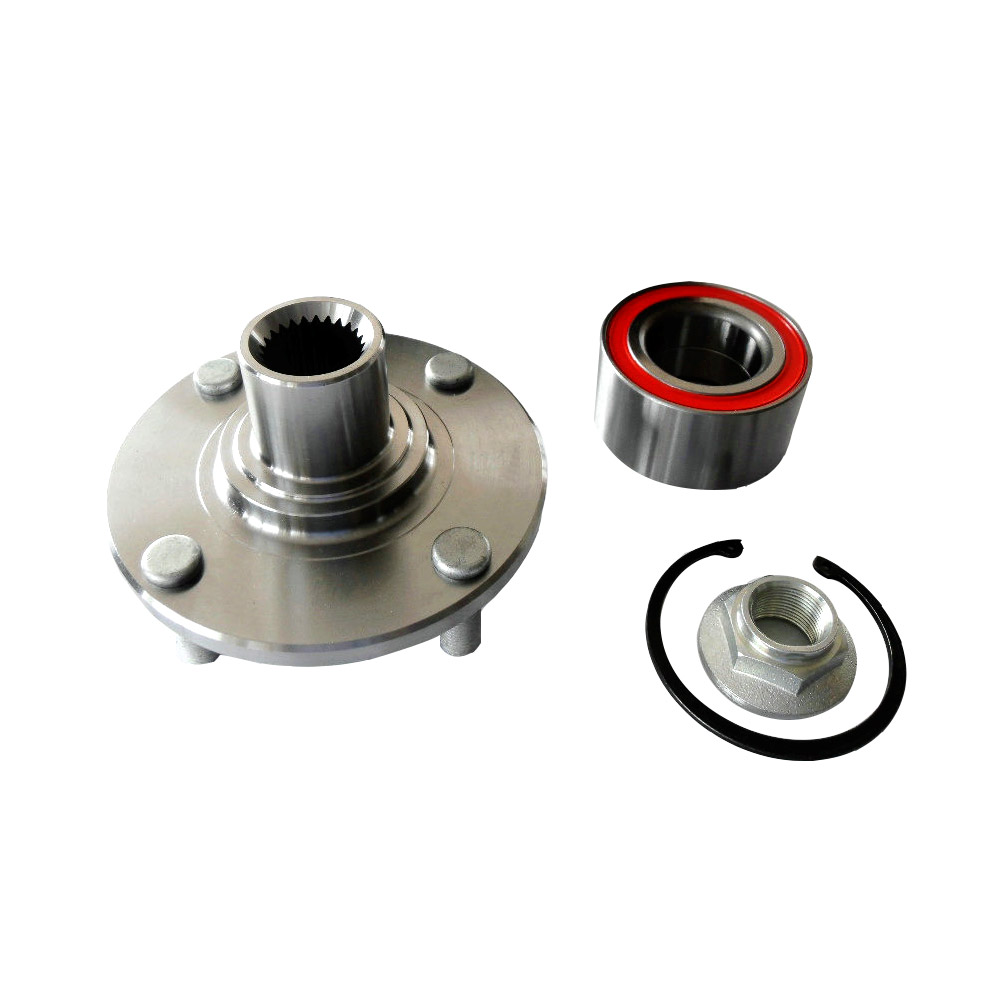In the realm of automotive components, few parts exemplify the perfect blend of precision engineering and everyday reliability as effectively as wheel hub bearings. These unassuming yet essential devices serve as the foundation for smooth and stable vehicle operation, bridging the gap between cutting-edge technology and practical functionality. From enhancing performance to supporting sustainability, wheel hub bearings continue to redefine what it means to be a dependable automotive solution.
Precision Engineering for Optimal Performance
At the core of wheel hub bearings’ appeal is their meticulous design, which prioritizes precision and efficiency. Each bearing is crafted to exact specifications, ensuring that it can handle the specific load and rotational demands of its intended application. Whether used in compact sedans or heavy-duty trucks, these components deliver consistent performance under varying conditions.
For example, tapered roller bearings are commonly used in rear-wheel-drive vehicles, where they excel at managing radial and axial loads simultaneously. Their unique geometry distributes stress evenly, reducing wear and improving overall durability. Similarly, ball bearings are favored in front-wheel-drive cars for their ability to handle lighter loads with minimal friction, contributing to better fuel economy and smoother handling.
Advancements in manufacturing processes have further elevated the quality of wheel hub bearings. Techniques like computer numerical control (CNC) machining and laser welding ensure unparalleled accuracy, resulting in components that meet the highest industry standards. This commitment to precision not only enhances vehicle performance but also reinforces consumer trust in automotive brands.

Enhancing Everyday Reliability and Safety
Beyond their technical prowess, wheel hub bearings are celebrated for their role in enhancing everyday reliability and safety. These components are subjected to rigorous testing to ensure they can withstand the rigors of daily use, from pothole-ridden city streets to bumpy rural roads.
For instance, in emergency braking scenarios, wheel hub bearings maintain stability and alignment, preventing wheels from locking up or losing traction. This is particularly important for vehicles equipped with ABS and electronic stability control (ESC), which rely on precise wheel speed data to function effectively. By supporting these systems, wheel hub bearings contribute to accident prevention and occupant protection.
Additionally, wheel hub bearings play a crucial role in maintaining vehicle balance. Properly functioning bearings ensure that weight is distributed evenly across all four wheels, reducing the risk of rollovers or skidding during sharp turns. This level of reliability is especially valuable in SUVs and vans, where higher centers of gravity pose additional challenges.
Supporting Sustainability and Cost Efficiency
As environmental concerns grow, wheel hub bearings are increasingly designed with sustainability in mind. Manufacturers are exploring eco-friendly materials and production methods to reduce the carbon footprint of these components. For example, lightweight alloys and recyclable materials are being used to create bearings that are both durable and environmentally responsible.
Furthermore, the longevity of wheel hub bearings contributes to cost efficiency and resource conservation. By minimizing wear on surrounding components, they reduce the frequency of part replacements and lower the overall environmental impact of vehicle ownership. This aligns with global efforts to promote sustainable practices and extend product lifecycles.
Bridging Tradition and Innovation
The evolution of wheel hub bearings highlights the intersection of tradition and innovation in automotive engineering. While their fundamental purpose remains unchanged, new technologies are continually being integrated to enhance their capabilities. For example, magnetic encoders embedded in modern bearings provide real-time data on wheel movement, enabling predictive maintenance and improved diagnostics.
Similarly, advancements in nanotechnology are paving the way for self-healing coatings and ultra-low-friction surfaces, which could revolutionize bearing performance in the coming years. These innovations demonstrate how traditional components can adapt to meet the demands of an ever-changing industry.
Wheel hub bearings represent the perfect fusion of precision engineering, reliability, and sustainability, addressing the complex needs of modern vehicles. By supporting optimal performance, enhancing safety, and embracing eco-friendly practices, they continue to shape the future of transportation. As industries strive for smarter and greener solutions, wheel hub bearings will undoubtedly remain a cornerstone of automotive excellence, proving that sometimes the smallest components have the greatest impact.






